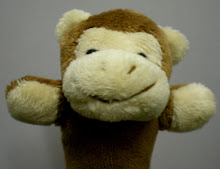
I rarely heard of Mormons while I was growing up. I remember reading a book by Orson Scott Card, reading the word Mormon and assuming it meant a black person, because it sounded like Moor. I was 11 or so at the time. It was only later that I came to learn it was a religion, but I knew very little other than the fact that it was another offshoot of Christianity, with perhaps more than its share of qookiness.
When I travelled through the United States less than two years ago, I had the opportunity to learn a lot about the history of the Mormons, or Latter Day Saints (or the many other variations of the name). Not just the founding mythos, but the actual subset of US history relating to the Mormons' travel to Utah and their relationship with the rest of the Union. It was very interesting.
So when I saw Sue-Ann Post perform at a dinner in Sydney, and then subsequently promoted her book, Confession of an Unrepentant Lesbian Ex-Mormon, relating her experiences as a child in the Mormon church and then her subsequent journey to agnostic atheist, I wanted to have a read. She'd run out of copies that night, but gave me her card, so that I could order a copy through her agent. I did so, and the copy arrived, signed by Sue-Ann herself. (Anyone else signing it would have been strange and unexpected).
Being caught up with many things, it took me a while to get around to reading it, though it was prominently placed on my reading table. Eventually, I carved out a little time and set about reading. I found it engrossing. The book, of course, relates her experience when she was invited to perform her comedy routine in the heart of Mormon territory, Utah, at a conference for gay and excommunicated Mormons. As part of this, Sue-Ann reflects on her past in the Church, her journey away from it as she realised she was a lesbian, and then furthermore, an atheist (agnostic) lesbian. Her story is told honestly, almost brutally so in a way that pulls no punches towards the Mormon Church, but at the same time gives credit where credit is due.
I very much enjoyed reading the book, because as well as being well written, informative and entertaining it reminded me of several things. Very few things are ever as simple as 'Everything an institution does is good' or 'Everything an institution does is bad'. The pressures keeping people dependant on a particular faith and social group can be immense and are often unrecognised both by people on the outside, but also by the adherents themselves. Finally, whilst some things can scar someone for the rest of their lives, that doesn't mean they can't still strive for a better life despite it, and succeed.
After reading the book, I found myself with a more informed and rounded view of the Mormon Church (which is after all no stranger than any other religion, except perhaps Scientology) and a better appreciation for some of the hardships faced by those true believers who, thanks to their curiousity and quest for answers, find themselves becoming atheists, with no one else around to support them when much of what they thought was true and based their lives on, turns out to be false.
 If you've ever wondered whether the zillion other self help books out there know what they're talking about (after all, how many of them actually refer to any scientific studies to prove what they claim) then you can now stop wondering and use all the other self help books you've ever bought as footrests in your living room, because 59 Seconds, by Richard Wiseman, may be the only self help book you ever need.
If you've ever wondered whether the zillion other self help books out there know what they're talking about (after all, how many of them actually refer to any scientific studies to prove what they claim) then you can now stop wondering and use all the other self help books you've ever bought as footrests in your living room, because 59 Seconds, by Richard Wiseman, may be the only self help book you ever need.

